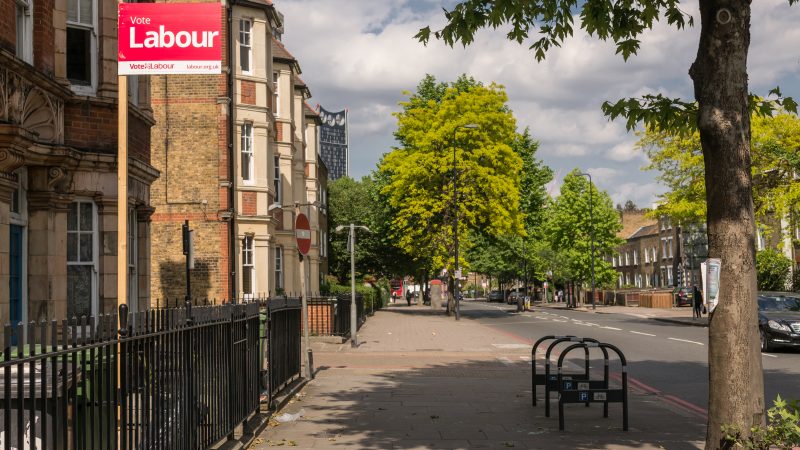
Labour is meant to be the party of the people. Rather than relying on a favourable hearing in the right-wing media, we campaign by mobilising as members and winning over voters to our vision of a fairer society. Together with our labour movement affiliates, our mass membership – which grew to the largest in Europe under socialist leadership – has a foot in every workplace and community across Britain.
Rather than taking our cues from billionaire donors, we’re funded by everyday people through their trade union contributions, membership fees and individual small donations. And rather than being represented by landlords, bosses and empty suits, our MPs should be workers, renters and community activists with the trust of local people and a clear commitment to socialist change. They should be as diverse as our country, representing both our united politics and our varied backgrounds.
But right now, that isn’t the case. And the latest proposals for “high-quality candidates”, which give Labour’s general secretary powers to ban candidates he deems “embarrassing”, look set to reinforce the problem.
In the past, career politicians and former advisers have been gifted Labour safe seats simply because they hold the favour of people at Labour HQ. The Parliamentary Labour Party is, to put it bluntly, a professional outfit of lawyers, former lobbyists and interns rather than a reflection of our membership and our voter base. Despite initiatives like the Bernie Grant Leadership Programme, the PLP is still far too white.
One of the failures of the Corbyn leadership was not to institute profound democratic reforms in how we select and reselect our parliamentary representatives. But rather than correct this mistake, the new leadership looks set to further centralise control of prospective candidate selections in the hands of HQ – at a time when that same HQ has just overseen a wave of unjust suspensions of members just for upholding local party democracy.
In this context especially, the problems with this push for so-called “high-quality candidates” are obvious. Local Labour parties spend months and years working out who the best candidate is, but the risk now is greater than ever before that they will be overridden on the whim of an unelected official.
The general secretary might find himself embarrassed by a candidate who endorses socialist policy, whilst the leadership vacillates, or maybe embarrassed by a candidate who makes a wholehearted defence of trans rights, whilst the majority of the PLP try to look the other way. Essentially, the party HQ is being given a profoundly undemocratic veto to wield over any candidate they dislike. This is no way to run our party or to find the candidates that can help win us the 2024 election.
It is my firm belief that ordinary people – who have learned their politics as they go, through a combination of experience and self-education – will be far more vulnerable to this veto than squeaky clean careerists who decided to go into politics after binge-watching The West Wing.
We all know that, in the era of moral panics on Twitter, outrage and scandal can be manufactured on the flimsiest basis. Just look at the way that Lisa Nandy has been relentlessly targeted after calling Joe Biden “woke”. Working-class candidates who have grown up in the age of social media and have varied life experiences that pre-date their political commitments will undoubtedly be targeted, especially if they are BAME. Just look at how our media treats young black public figures like Raheem Sterling, who was pilloried for a tattoo of a gun that memorialised his father. ‘Embarrassment’ is not a neutral phenomena.
That’s why we should be standing up to the ‘denounce first, think later’ approach of the right-wing media and their ‘outrider’ attack dogs. If we do take our commitment to be the party of working people seriously, Labour’s national executive committee (NEC) must oppose these proposals.
We can and will select quality candidates – but we will do so by empowering members, not unelected officials often with little understanding of politics beyond Westminster. I know that the members of a local party have the best sense of who can win in their seat, because they live and breathe the reality of politics in their streets and workplaces.
That’s why, at conference 2021, I will be wholeheartedly supporting all rule change motions that aim to defend and extend party democracy. If we want our party to represent ordinary people, then ordinary people need to have the final say.
Update, 5pm: LabourList understands that the Labour Party maintains there have been no changes to the level of member involvement in selections and the NEC – not the general secretary – has the final say in the approval of candidates. Party sources say NEC members are aware of this, along with the fact that due diligence checks have been extended under the party’s commitments to the Equality and Human Rights Commission.




More from LabourList
‘Labour’s quiet quest for democratic renewal’
‘Labour promised to make work pay. Now it must deliver for young people’
‘Council Tax shouldn’t punish those who have the least or those we owe the most’